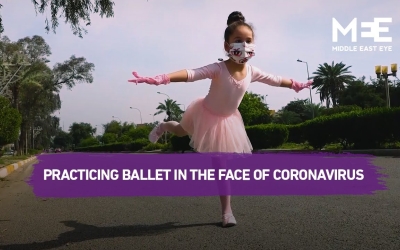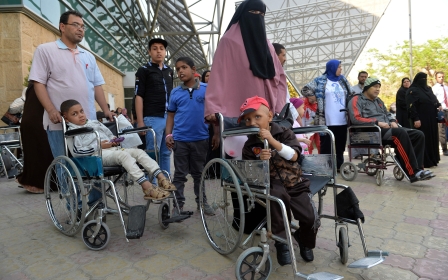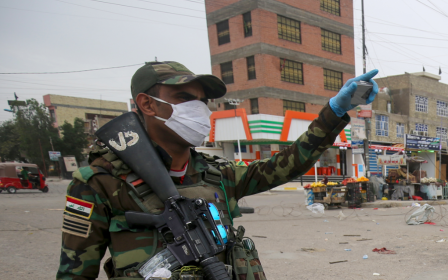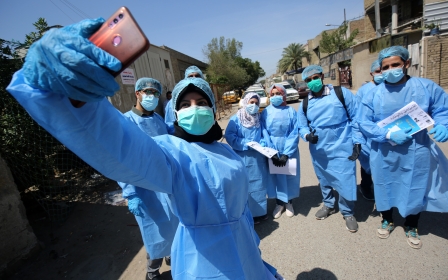Coronavirus: Iraqi women at risk as conservative families refuse treatment
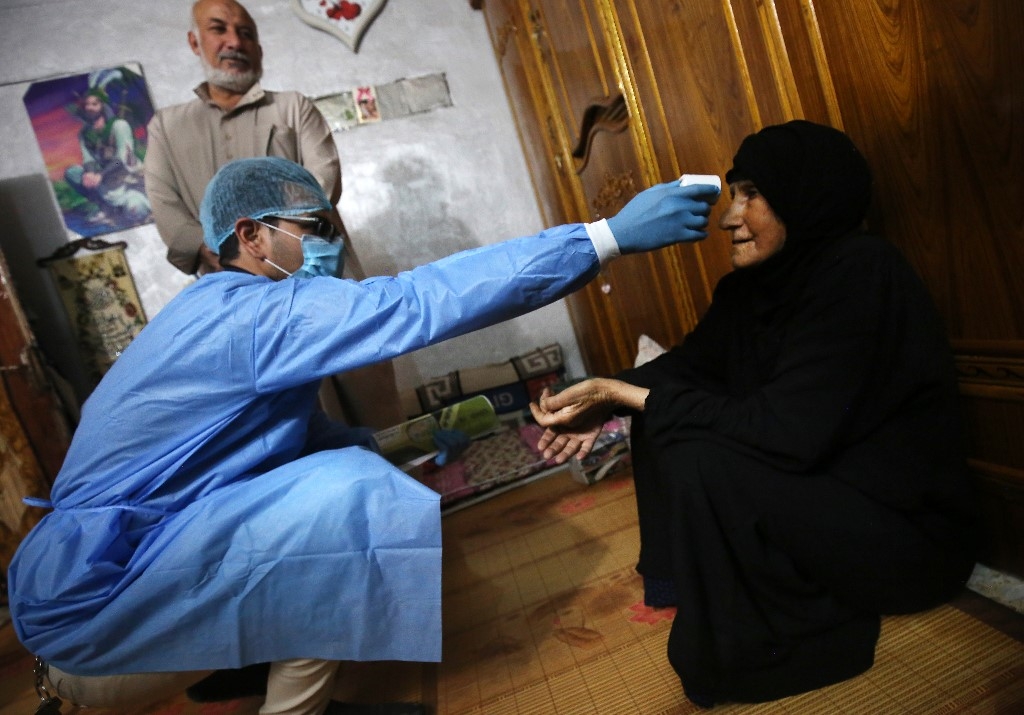
The medical team had come to the modest one-storey home in the Basra suburb of Al Hayaniya to treat a woman infected with coronavirus.
Instead, they had a stand-off with her male relatives, all of it caught on tape.
"She is doing well. Her condition is getting better and, if you like, I can allow you to talk to her on the phone," said Muthana al-Sudani, the woman's brother-in-law, standing in his doorway.
When the healthcare team refused to leave without seeing the woman, her husband, Ali al-Sudani, started shouting.
"Go back to the ambulance and leave now, otherwise I swear I will bring my gun and shoot you," he said.
"Leave now, or I will shoot the ambulance and even the police car parked there."
The footage was widely viewed across Iraq after it was leaked last week, but it is not the first death threat doctors have received in recent weeks.
A physician in Al-Shattra, a town about 300km south of Baghdad, received death threats from the family of a female patient after he confirmed her infection with coronavirus on Sunday, local medical sources told Middle East Eye.
Another doctor received similar threats on Monday after he confirmed the infection of a female patient in Diyala governorate, 60km east of the capital, local security sources told MEE.
'Some people consider their infection a disgrace'
Some Iraqis are stopping women in their family from accessing treatment because they do not want them to be in contact with men or to stay in hospitals alone, healthcare providers told MEE.
In more traditional corners of the country, especially those controlled by tribes and religiously conservative areas, women are seen as symbols of family honour that could be stigmatised by the virus.
"Frankly, not all Iraqis are of the same level of awareness or healthy culture," Dr Radhwan Kamel al-Kindi, general director of the Najaf Health Directorate and member of the Iraqi government's coronavirus crisis cell, told MEE.
"Unfortunately, some people consider their infection a disgrace or a scandal."
After the leak of the video and widespread criticism of the Iraqi security authorities in the media, the intelligence officers were sent to arrest Ali al-Sudani, who was also caught on tape on Saturday, only hours after the first video.
Immediately afterwards, his wife - whose identity has not been disclosed to protect her privacy - was taken to the hospital by a medical team and ambulance that had been on stand-by.
But not all cases end like this.
High death rate
Iraq ranks second after Iran among countries in the Eastern Mediterranean with the highest coronavirus mortality rates, according to a World Health Organisation statement issued this week.
According to the latest statistics announced by the Iraqi Ministry of Health on Friday, the number of people infected with the virus has reached 820, including 54 deaths.
Iraq's death rate, however, is four times higher than the global rate because people are arriving at hospitals in the late stages of their infections because families fear quarantine and the shame they associate with the illness, crisis-cell members told MEE.
Healthcare providers have estimated that five percent of Iraqi women may have been denied access to treatment in a timely manner as a result of customs and traditions, while Iraqis of both sexes may be at risk of not getting the care they need over fears they will be disgraced.
"Some families are really reluctant to reveal the illness of any of their members," said Kindi.
"The problem is that about five percent of women may not receive treatment because of this issue, so we are currently working by all means to find solutions that satisfy families and ensure that affected women receive treatment."
Same-family areas
According to Iraqi law, authorities have no power to intervene by imposing treatment of an adult without their consent, but the outbreak has caused the Supreme Judicial Council to allow security services to intervene when someone refuses treatment or quarantine.
One solution being used by hospitals in Baghdad is to place family members in the same hall "to relieve them and to reassure men that their women are not alone," a physician at Ibn al-Khatib Hospital in the capital told MEE.
Many patients who are currently getting treatment in Ibn al-Khatib hospital, and who were reached by MEE, confirmed that they are staying with their family members.
At a facility in Najaf, Kindi said that health personnel allowed the father of an infected girl to be with her inside the hospital around the clock after they failed to persuade him to let her be alone.
"We accept any settlement with the affected families to ensure that the impacted women will receive the treatment," Kindi said.
"The affected woman must be treated. This matter is not subject to discussion because it affects the security of society and part of national security."
This article is available in French on Middle East Eye Fench edition.
Middle East Eye delivers independent and unrivalled coverage and analysis of the Middle East, North Africa and beyond. To learn more about republishing this content and the associated fees, please fill out this form. More about MEE can be found here.


